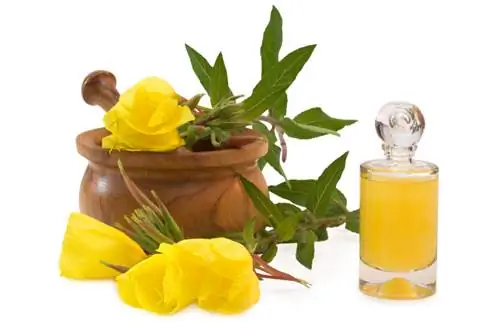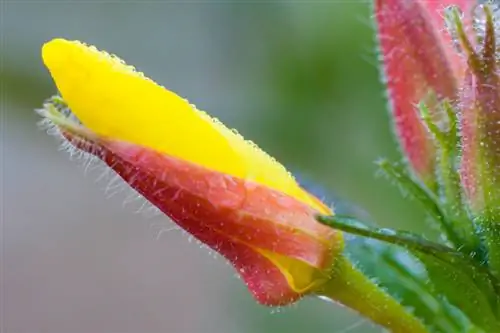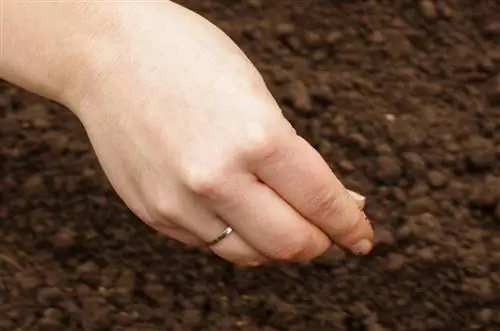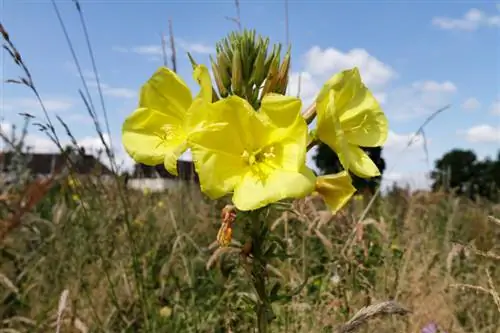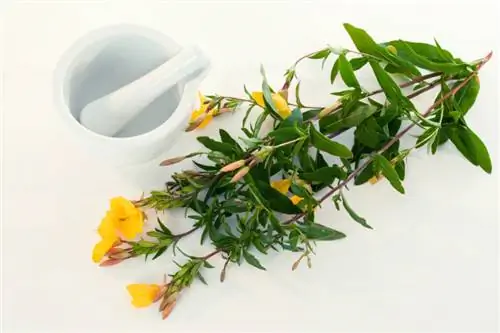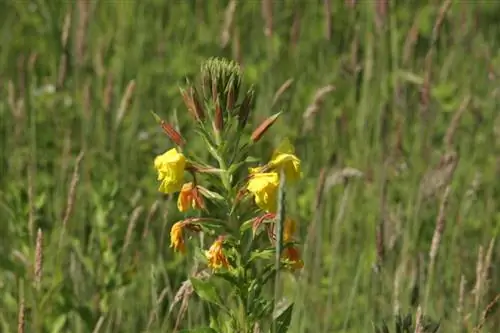- Author admin leonars@hobbygardeners.com.
- Public 2023-12-16 16:46.
- Last modified 2025-06-01 06:02.
The evening primrose, a flowering perennial that grows up to 60 centimeters high, adorns colorful perennial beds and many borders with its mostly bright yellow flowers. However, the traditional cottage garden plant is not only used as an ornamental plant, but can also be eaten as a vegetable. The plant - especially its seeds and flowers - is also used in medicine.
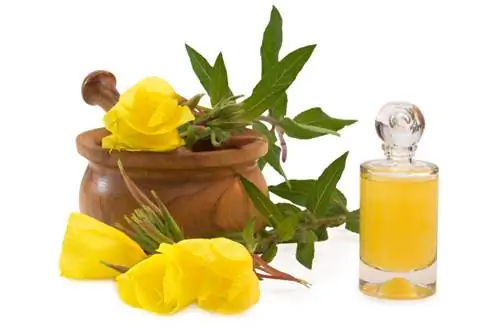
Are evening primroses poisonous?
Evening primrose is not poisonous to people or animals. It can be used as food and in medicine, for example as an addition to salads, vegetables or to relieve skin problems and respiratory diseases.
Evening primrose is not poisonous to humans or animals
Anyone who searches the Internet for information about the toxicity of evening primrose will end up very confused. Information appears often enough that the plant is poisonous and therefore not edible. You can safely forget such claims because they are simply false. Quite the opposite: Evening primrose leaves, roots and flowers have been eaten as food for centuries - a custom that has been somewhat forgotten in recent decades. The plant is just as poisonous to animals as it is to humans - quite the opposite, as guinea pigs, rabbits, etc. love to nibble on the tasty leaves.
Evening primrose as food
Due to its reddish color, the fleshy root of the evening primrose was also previously called “ham root”. It was cooked in meat broth and used either as a salad with vinegar and oil or as a vegetable such as salsify. The young leaves are suitable as a salad addition or cooked as spinach, the flowers and flower buds make a wonderful, edible decoration.
Evening primrose in medicine
The seeds of the evening primrose in particular contain a lot of gamma-linoleic acid and are therefore pressed into oil and used for skin problems. Evening primrose oil is particularly often used for neurodermatitis. The flowers can be used to make an infusion or syrup that provides relief from coughs and other minor respiratory illnesses.
Tip
The evening primrose seeds roasted in a pan without fat also taste very tasty in muesli.

